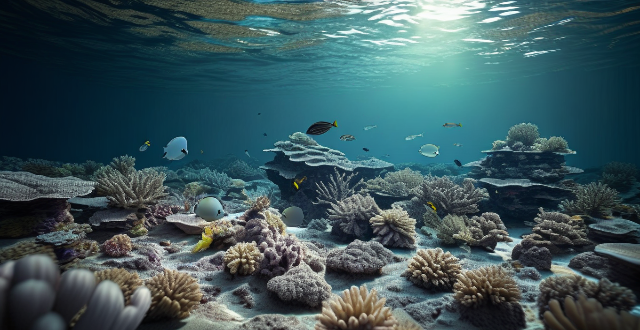Climate change is one of the most pressing issues facing our planet today, caused by human activities such as burning fossil fuels and deforestation. Taking action on climate change is crucial for individuals due to its impacts on health, economy, environment, social justice, and moral responsibility. By making small changes in daily lives and advocating for systemic change, everyone can play a role in addressing this urgent issue.

Why is it important for individuals to take action on climate change?
Climate change is one of the most pressing issues facing our planet today. It refers to the long-term alteration in global climate patterns caused by human activities, primarily the burning of fossil fuels and deforestation. The consequences of climate change are far-reaching and can have devastating effects on ecosystems, wildlife, and human societies. Therefore, it is crucial for individuals to take action on climate change. Here are some reasons why:
1. Health Impacts
One of the most significant impacts of climate change is on human health. Rising temperatures can lead to heat stress, heat stroke, and other heat-related illnesses. Additionally, extreme weather events such as hurricanes, floods, and wildfires can cause injuries, deaths, and displacement of people. By taking action on climate change, we can reduce these health risks and protect ourselves and future generations.
2. Economic Consequences
Climate change can have severe economic consequences as well. Extreme weather events can damage infrastructure, disrupt transportation networks, and lead to crop failures and food shortages. These disruptions can result in lost productivity, higher prices for goods and services, and increased poverty levels. By taking action on climate change, we can mitigate these economic impacts and promote sustainable development.
3. Environmental Degradation
Climate change is causing significant environmental degradation worldwide. Rising sea levels are threatening coastal ecosystems, while changing precipitation patterns are affecting freshwater systems. Additionally, many plant and animal species are at risk of extinction due to shifting habitats and changing climate conditions. By taking action on climate change, we can help preserve these ecosystems and protect biodiversity.
4. Social Justice Implications
Climate change disproportionately affects vulnerable communities, including low-income families, indigenous peoples, and those living in areas prone to natural disasters. These groups often lack the resources to adapt to changing climate conditions or recover from extreme weather events. By taking action on climate change, we can address these social justice implications and ensure that everyone has access to a safe and healthy environment.
5. Moral Responsibility
Finally, it is essential to recognize that each individual has a moral responsibility to act on climate change. As members of the global community, we all contribute to greenhouse gas emissions through our daily activities, such as driving cars, using electricity, and consuming products made from fossil fuels. By taking steps to reduce our carbon footprint and advocate for policies that promote renewable energy sources and sustainable practices, we can fulfill our moral obligation to protect the planet for future generations.
In conclusion, taking action on climate change is crucial for individuals because it has significant implications for human health, the economy, the environment, social justice, and moral responsibility. By making small changes in our daily lives and advocating for systemic change, we can all play a role in addressing this urgent issue.